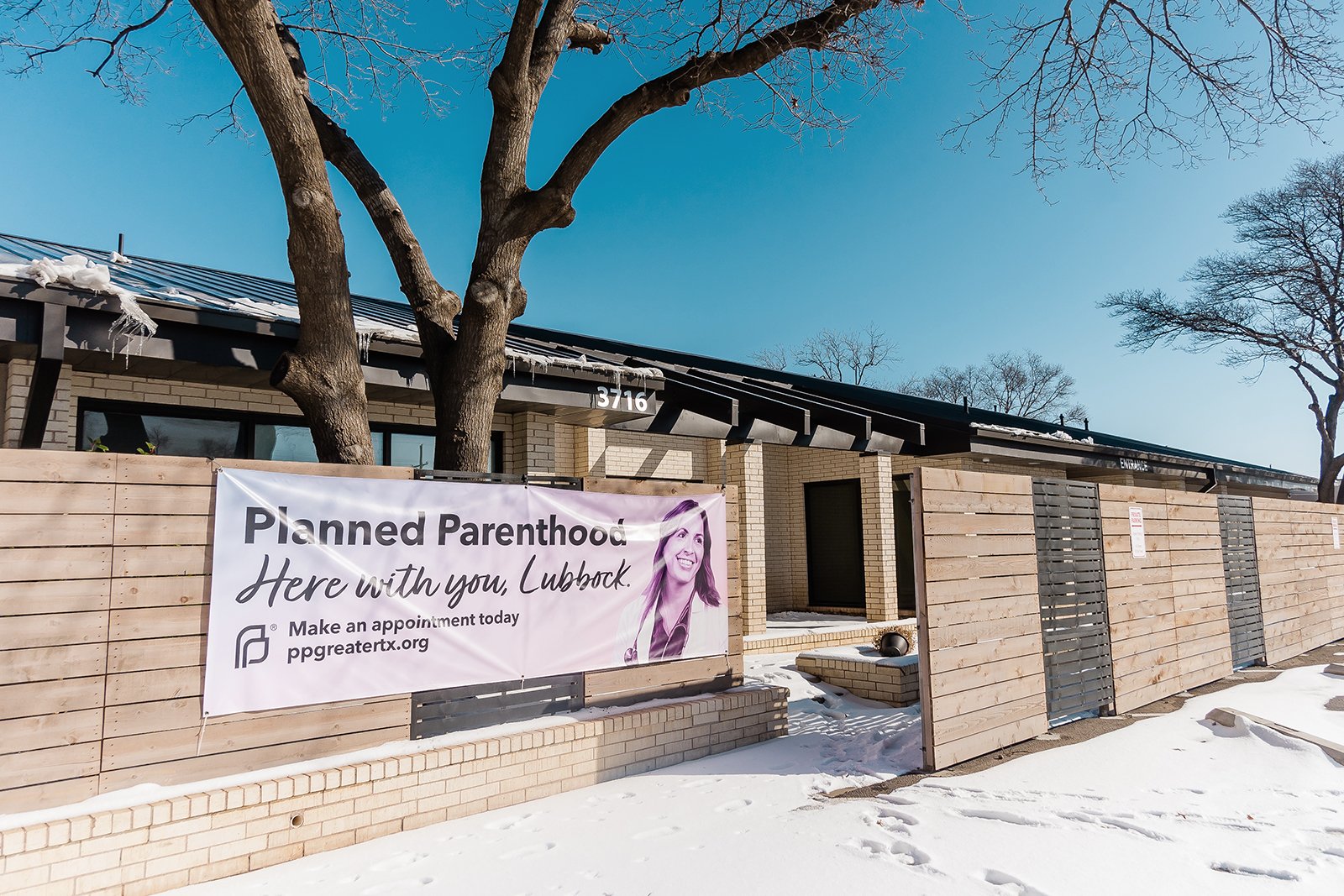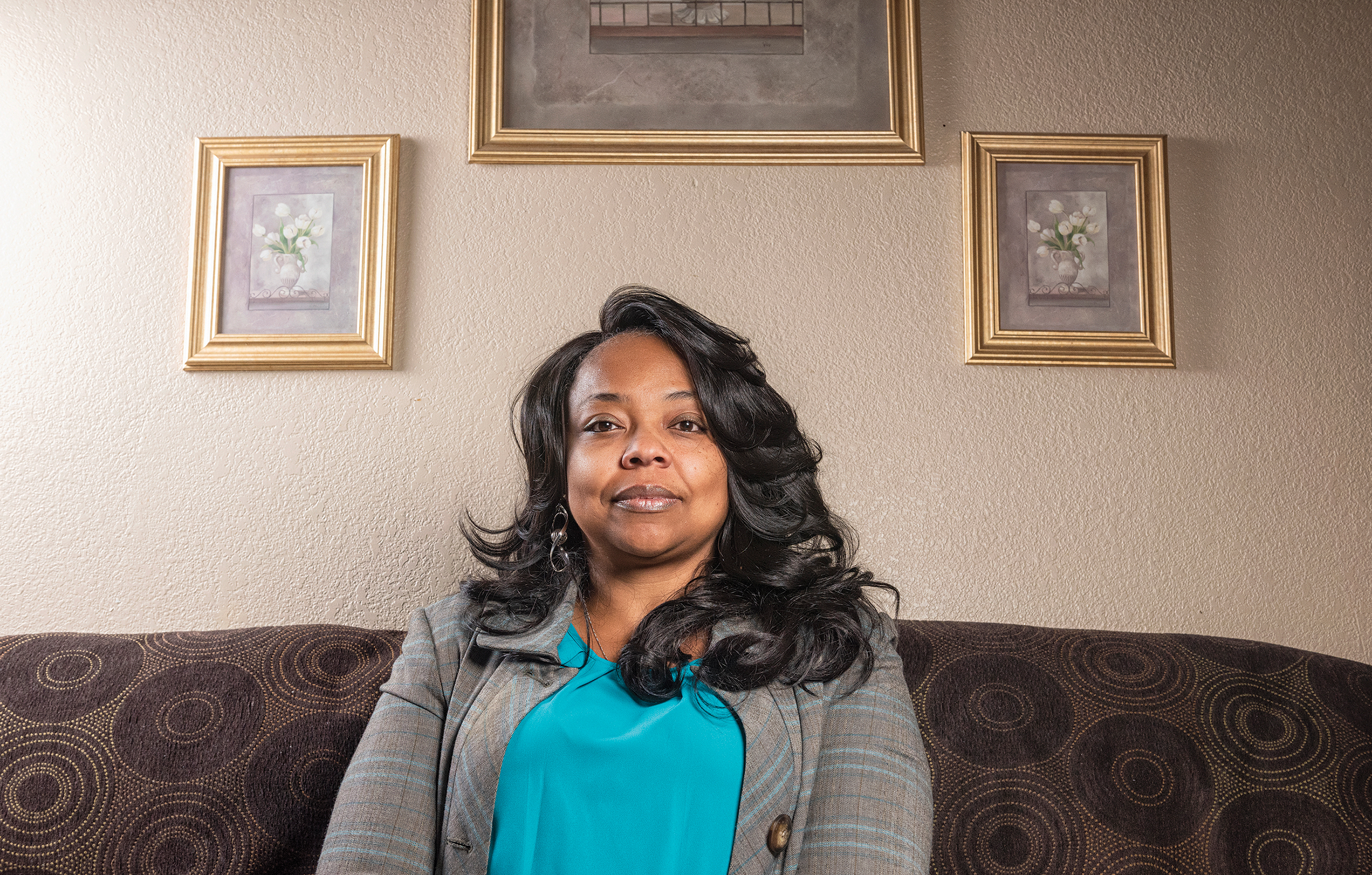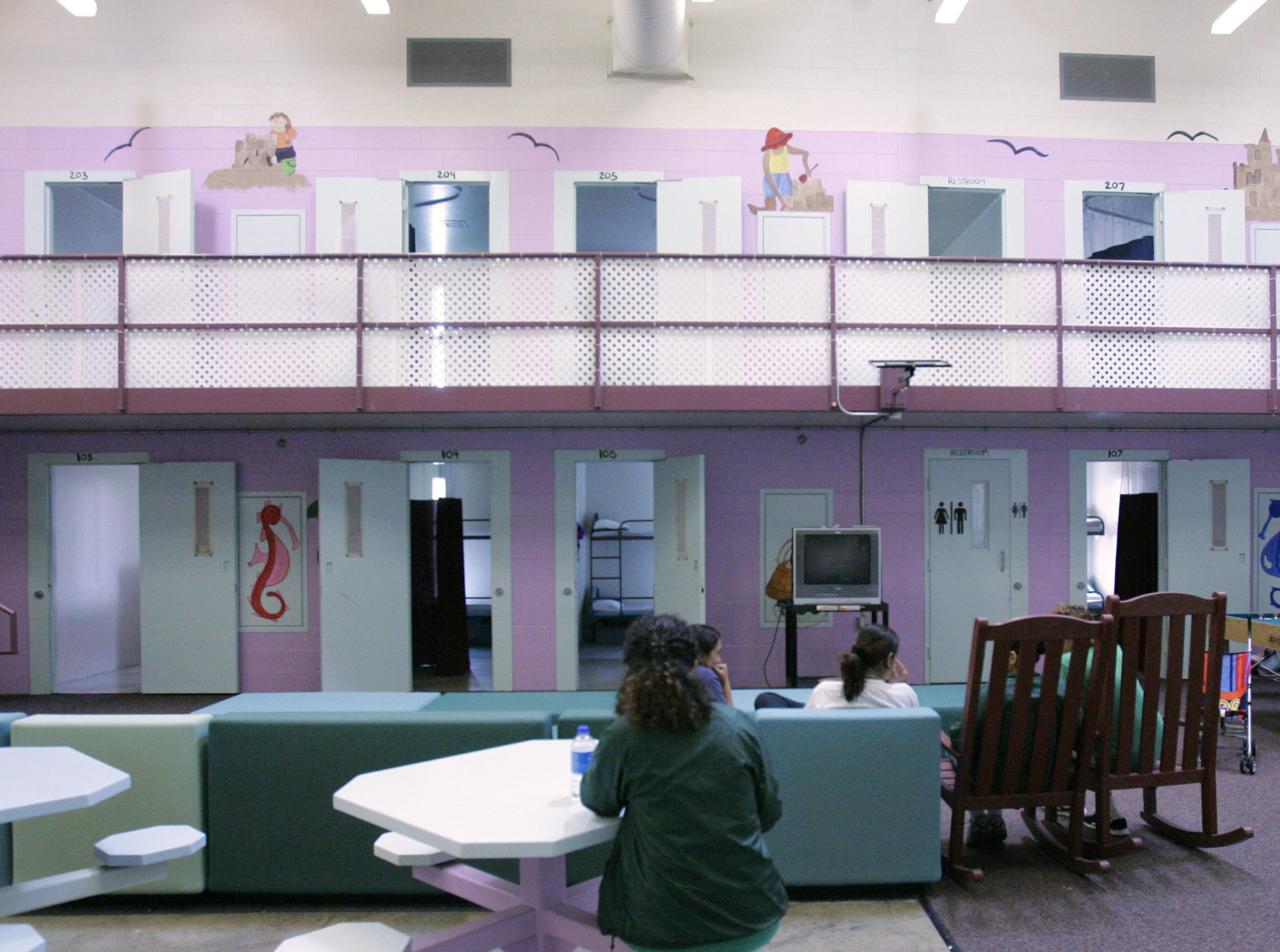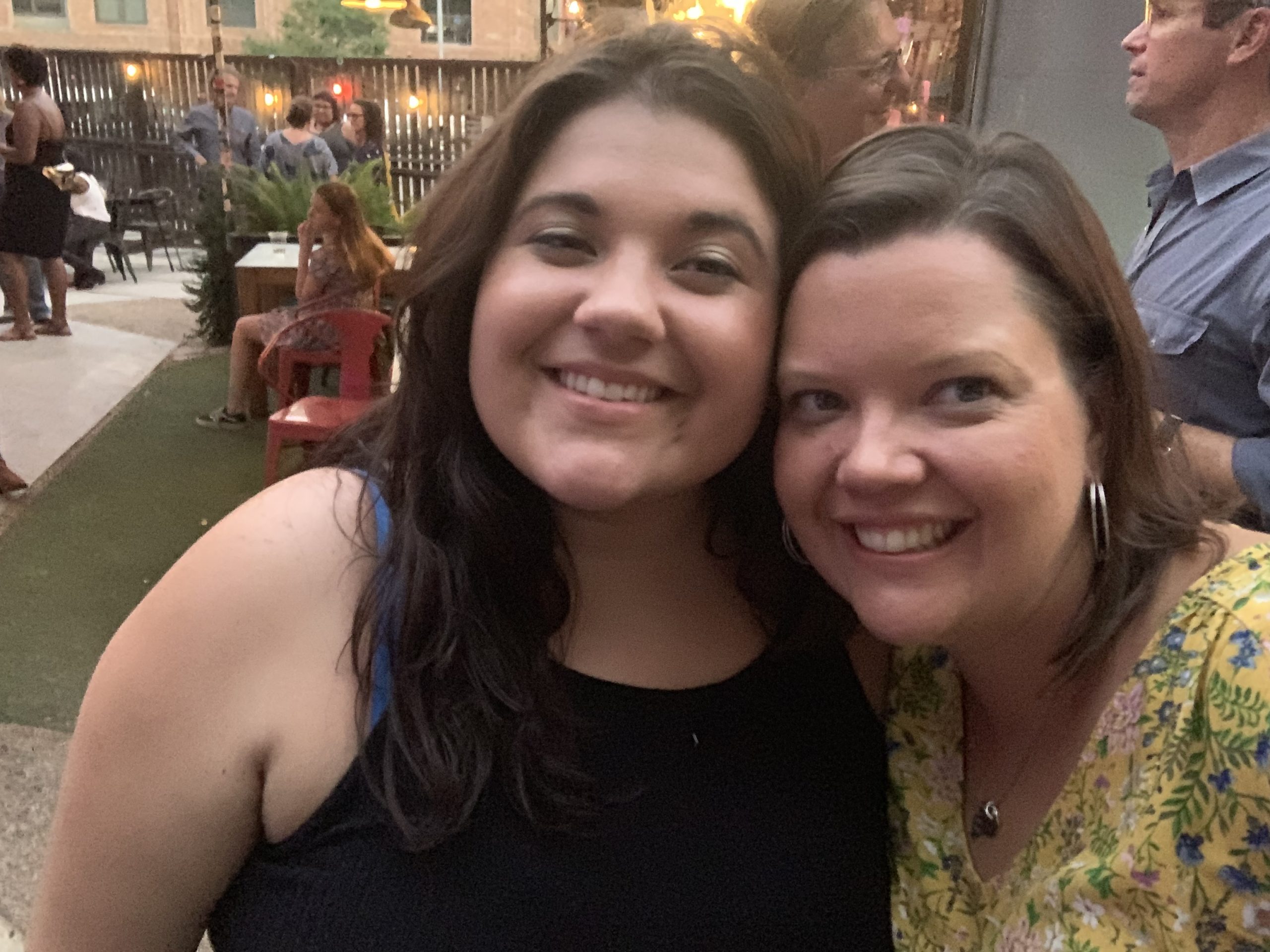
A New Group of Sexual Assault Survivors in Texas is Seeking Systemic Reform
“To make change we have to sit in that trauma and feel like it just happened, [revisiting times] we could have been helped by someone, but we were just let down by the system and by others.”
A version of this story ran in the May / June 2021 issue.
Emily LeBlanc never reported her rape. For over a decade, she hardly talked about it. As a therapist and longtime advocate for sexual assault survivors, she’s counseled hundreds of women through similar experiences. But when a friend assaulted her in 2007, LeBlanc tried to convince herself that what happened wasn’t as bad.
“That’s a thing survivors do,” LeBlanc says. “We compare our stories to others, thinking we’re in some awful Hunger Games of trauma where only the worst story is worth telling.”
She called a Texas-based survivors’ hotline looking for support but it made everything worse. “Legally, he can say he was raped, too,” the person on the line told her, after LeBlanc shared that they’d both been drinking. She hung up, believing it was her fault, that no one would believe her. “It led to the only night in my life where I’ve ever had a suicidal thought,” she says.
Now, more than 13 years later, LeBlanc is sharing her story in an effort to improve the systems intended to support survivors in Texas. As a leader of the newly formed Survivor Advisory Board (SAB), LeBlanc will work with state and local government entities to help shape policy. The board, the first of its kind in Texas, was created by the nonprofit Texas Association Against Sexual Assault last year to unify and amplify survivor voices in the systems that work with people who have been assaulted. So far, the SAB has filled 17 of its 22 seats with rape survivors from across the state who will share their personal stories to effect change. It’s a unique, empowering opportunity, members say, but there’s a vulnerability that comes with sharing one’s trauma, especially with the people and institutions that have historically failed them. “It is much more personal,” says LeBlanc. “It takes a lot more energy for me to show up as a survivor.”
SAB members are already working with lawmakers this legislative session, along with other government entities such as the statewide Sexual Assault Survivors’ Task Force, created in 2019 and housed in the governor’s office. The SAB is also contacting rape crisis centers throughout the state, and members hope to reach law enforcement and prosecutors to offer survivor perspectives on programs and policies.
Though individuals have long used their stories to make change, the collective effort intends to unite survivors to improve the systems that failed them. Unlike LeBlanc, her SAB co-leaders Lavinia Masters and Marina Garrett have been speaking about their experiences to drive local and statewide change for years.
In 1985, Masters was raped at knifepoint by a stranger in her Dallas bedroom. She says police questioned her, then 13 years old, about her relationship with the man: Was he her boyfriend? Was she trying to hide that she had sex from her parents? “That devastated me more than the rape,” she says. Unbeknownst to her for years, her case was closed in less than a week and her rape kit sat untested for two decades. It contained DNA evidence of a serial rapist, but by the time it was tested the statute of limitations had expired. Masters began lobbying state leaders for timely testing of rape kits in 2005 after learning the fate of hers, sharing her story with legislators and writing to then-Texas Governor Rick Perry. “I was like, somebody’s going to hear me,” Masters says.
Garrett was a student at the University of Texas at Austin when she was raped in a downtown parking garage in 2015. A voicemail left on a friend’s phone recorded her screaming “No;” her rapist even told police he had sex with her. But Garrett’s case was ultimately denied prosecution because her rape kit didn’t contain DNA. According to an ongoing lawsuit, the Travis County District Attorney’s office told her that rape cases need DNA evidence to succeed due of the “CSI effect”—a belief that television has made jurors expect greater forensic evidence to convict.
A year later, Garrett gave her first testimony as a survivor to Austin City Council, during budget deliberations over funding to address the city’s rape kit backlog. Garrett’s kit was one of thousands that had been collected as evidence but at that point had not been tested. Testifying was “terrifying;” she shook as she spoke and couldn’t make it through without crying. But “I think it made them think about sexual assault in a different way and realize how personal this is and just how deep the trauma goes,” she says.
LeBlanc, Masters, and Garrett agree: Their rapes were traumatic, but their interactions with systems intended to support them intensified their trauma. “So many of our experiences have the common thread of, ‘Yes, I was raped and it was awful and traumatic’ and still, the thing that really hung me up, that I obsessed about for years and caused me to feel suicidal, was someone else’s response to that,” says LeBlanc.
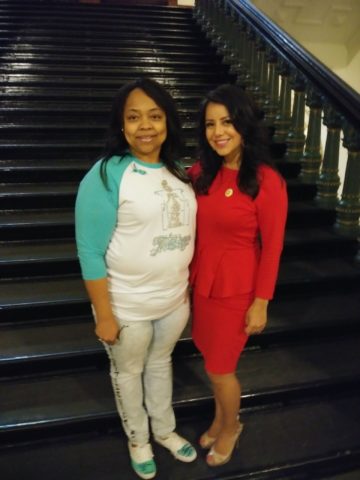
Since 2011, Texas has struggled to reduce a backlog of approximately 20,000 untested rape kits, with about 18,000 new ones created annually across the state. In 2019, state lawmakers passed legislation called the Lavinia Masters Act to ensure timely testing of rape kits and extend the statute of limitations. The same year, they created the Sexual Assault Survivors’ Task Force, which brings together law enforcement, prosecutors, sexual assault nurse examiners, advocates, and state officials to examine system gaps and make recommendations to lawmakers.
This session, the SAB is backing legislation seeking to expand Texas’ legal definition of sexual assault. One bill would include instances when the survivor was too intoxicated to consent or when consent was withdrawn, as well as when a caregiver exploits those they’ve been hired to assist. Another would amend the penal code to say a person in custody cannot consent. At least five other survivor-centric bills have been referred to a legislative committee so far, and several public hearings were held in mid-March, with testimony from SAB members.
Advocates and survivors are heartened by progress in recent years, but say more change is needed. In Texas, two in five women have been sexually assaulted, higher than the national average. According to a 2015 study from the University of Texas at Austin, one-third of adult Texans have experienced some form of sexual assault, yet only 9 percent of them report to law enforcement. Of those, only 37 percent said charges were filed. Several lawsuits filed between 2017 and 2020 suggest the criminal justice systems in Travis County and Houston have mishandled sexual assault cases and violated survivors’ constitutional rights.
Since she started advocating, Garrett, who is a plaintiff in a federal class action lawsuit against the Austin Police Department and the Travis County District Attorney’s Office, believes progress has been made. Austin City Council recently separated the city’s DNA lab from the police department’s control, and Margaret Moore, the DA named in the lawsuit, lost her bid for re-election in the July runoff last year. But the work of constantly reliving her trauma is “exhausting,” Garrett says.
“To make change we have to sit in that trauma and feel like it just happened,” revisiting times “we could have been helped by someone, but we were just let down by the system and by others,” Garrett says. “Some days, I’m super happy to do it. I want to talk about it, and it’s very healing for me. … Other days, I wake up and I think I’m going to lose my mind if I have to tell one more person about it.” She pauses. “But I do. I tell one more person about it, and I keep going.”
The three women are hopeful that the work they’re doing will continue to change the system’s response to survivors, make sexual assault and consent easier to talk about, and potentially lead to less violence. LeBlanc notes she does this work partly for her daughter: “That she may never experience assault, or if she does that she never has to engage with systems that exploit that trauma.”
Masters says she often hears other members of the Sexual Assault Survivors’ Task Force, which she’s been part of since 2019, talking about their role in sexual assault cases like it’s just a job. “I tell them, ‘I’m putting myself back into that 13-year-old girl on that night I was raped.’” Masters believes the mindset of “It’s just another rape case” has led to many failures in the criminal justice system. “That’s why you put evidence on the shelf and you leave it for 20 years,” she says. “You don’t look at that as Lavinia Masters sitting up there, Emily sitting up there, Marina sitting on that shelf—waiting, wondering when my justice system will look at me as a person.”
